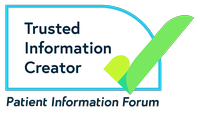Can I still go out and enjoy myself?
Yes. Doing the things you enjoy and socialising with friends and family are essential for your mental wellbeing. It’s important to enjoy yourself when you can, so that you start to feel like you are getting back to the life you had before your transplant.
However, your medical condition will have a bearing on what you can do, and you will need to consider the risk of you picking up an infection. You might also find that you tire easily, and that you still feel tired the following day. Try to plan your social life accordingly. If there is something you would really like to do, give yourself plenty of time to recover.
Will I still be able to drink alcohol?
Drinking alcohol is an important part of socialising for many people. Unless your medical team tells you otherwise, there’s no reason why you can’t still enjoy a drink. Just remember that's it’s best to be sensible and not overdo it. Hangovers are nasty at the best of times, so try to avoid them. You will probably find that you can’t drink as much as you could before your transplant and that it takes longer to recover.
Adults should not regularly drink more than 14 units of alcohol each week. More information is available on the Drinkaware website.
If I continue smoking, how will it affect my health?
It’s common knowledge that smoking is bad for your health – it causes cancer and reduces your lung function – but it also alters the way your body reacts to medicine. This could mean that the immunosuppressive drugs and medications that you’re taking don’t work properly.
There are many other benefits to giving up smoking, including saving money and preventing close family and friends from inhaling second-hand smoke. We won’t tell you to stop, but you might want to consider cutting back, or to stop smoking completely in the short term.
If you need help to quit smoking, talk to your medical team about organisations that can help you, or visit the NHS Quit Smoking website.
If I use drugs, how could it affect my health?
Generally speaking, it’s probably best to avoid using recreational drugs during recovery from any sort of medical treatment. They can have a negative effect on your state of mind, which can make it more difficult to cope with any problems you might be experiencing. Recreational drugs could even interfere with the effectiveness of cancer medication, but more specific research in this area is needed.
You must be honest with your medical team about what you take and how often. Nobody will judge you, but your choices could have a serious impact on your health and how your body reacts to medication. It could also increase your risk of infection.
Do you recommend
alternative medicines or therapies?
We can only recommend that you follow the advice of your medical team or GP. The advice we give on our website and in our patient resources is based on clinical research and has been approved by medical professionals.
However, there are alternatives that some people feel passionate about and believe can bring benefit to their recovery. If you want to explore one of these options, such as spiritual healing, you must discuss it with your team first so that they can check that it’s safe.
Further advice
If you have any concerns about the topics discussed here, please talk to your medical team. Alternatively, you can contact the Anthony Nolan Patient Services team on 0303 303 0303 or patientinfo@anthonynolan.org.

Information published: 23/12/21
Next review due: 23/12/24